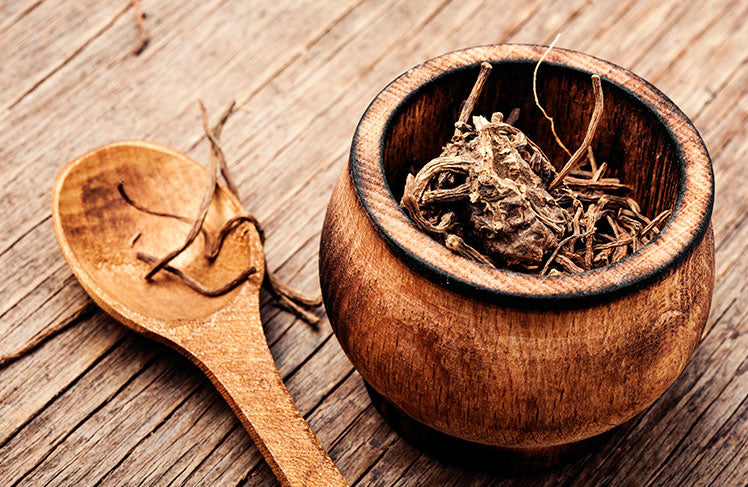Valerian for Better Sleep

Valerian root is often referred to as "nature's Valium." In fact, this herb has been used since ancient times to promote tranquility and improve sleep. The root portion has been used in traditional medicine for at least 2,000 years. Interestingly, the name "valerian" is derived from the Latin verb valere, which means "to be strong" or "to be healthy." Valerian root contains a number of compounds that may promote sleep and reduce anxiety.
These include valerenic acid, isovaleric acid and a variety of antioxidants.
Valerian has received attention for its interaction with gamma-aminobutyric acid (GABA), a chemical messenger that helps regulate nerve impulses in your brain and nervous system.
Researchers have shown that low GABA levels related to acute and chronic stress are linked to anxiety and low-quality sleep. Valerenic acid has been found to inhibit the breakdown of GABA in the brain, resulting in feelings of calmness and tranquility. This is the same way anti-anxiety medications like Valium and Xanax work. Valerian root also contains the antioxidants hesperidin and linarin, which appear to have sedative and sleep-enhancing properties. Many of these compounds may inhibit excessive activity in the amygdala, a part of the brain that processes fear and strong emotional responses to stress
Studies: In an eight-week controlled study of adults with OCD, the group who took valerian extract on a daily basis showed a significant reduction in obsessive and compulsive behaviors when compared to the control group (https://www.ncbi.nlm.nih.gov/pubmed/22718671). What's more, unlike many of the medications commonly used to treat OCD, valerian didn't cause any significant side effects.
In a controlled study of 27 young and middle-aged adults with sleep difficulties, 24 people reported improved sleep and 12 of those reported "perfect sleep" after taking 400 mg of valerian root (https://www.ncbi.nlm.nih.gov/pubmed/2678162)
One study in adults with insomnia found that a single dose of valerian allowed them to achieve deep sleep 36% faster. Additionally, the time they spent in deep sleep increased during 14 days of taking valerian (https://www.ncbi.nlm.nih.gov/pubmed/10761819)
Valerian may also help people who have insomnia after they stop taking benzodiazepines, sedative medications that may lead to dependence over time. In a study of people who had withdrawal symptoms related to stopping benzodiazepines after long-term use, significant improvements in sleep quality were reported after two weeks of valerian treatment (https://www.ncbi.nlm.nih.gov/pubmed/11999905)
